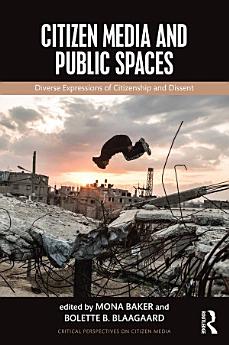Citizen Media and Public Spaces
អំពីសៀវភៅអេឡិចត្រូនិកនេះ
Framed by a substantial introduction by the editors, the twelve contributions to the volume interrogate the concept of citizen media theoretically and empirically, and offer detailed case studies that extend from the UK to Russia and Bulgaria and from China to Denmark and the liminal spaces within which a growing number of refugees now live.
A rich new domain of scholarship and practice emerges out of the studies presented. Citizen media is shown to embrace both physical and digital interventions in public space, as well as the sets of values and agendas that influence and drive the practices and discourses through which individuals and collectives position themselves within and in relation to society and participate in the creation of diverse publics.
This book will be of interest to students and researchers in media and communication studies, particularly those studying citizen media, media and society, journalism and society, and political communication.
Cover image: courtesy of Ruben Hamelink
អំពីអ្នកនិពន្ធ
Mona Baker
is Professor Emerita in Translation Studies at the Centre for Translation and Intercultural Studies, University of Manchester, UK. She is the author of Translation and Conflict (2006) and In Other Words (2011) and editor or co-editor of numerous reference works, including Routledge Encyclopedia of Translation Studies (2009).Bolette B. Blaagaard
is Associate Professor of Communications at Aalborg University, Copenhagen, Denmark. She is the co-editor of Deconstructing Europe: Postcolonial Perspectives (2012) with Sandra Ponzanesi, After Cosmopolitanism (2013) with Patrick Hanafin and Rosi Braidotti, and Cosmopolitanism and the New News Media (2014) with Lilie Chouliaraki.





